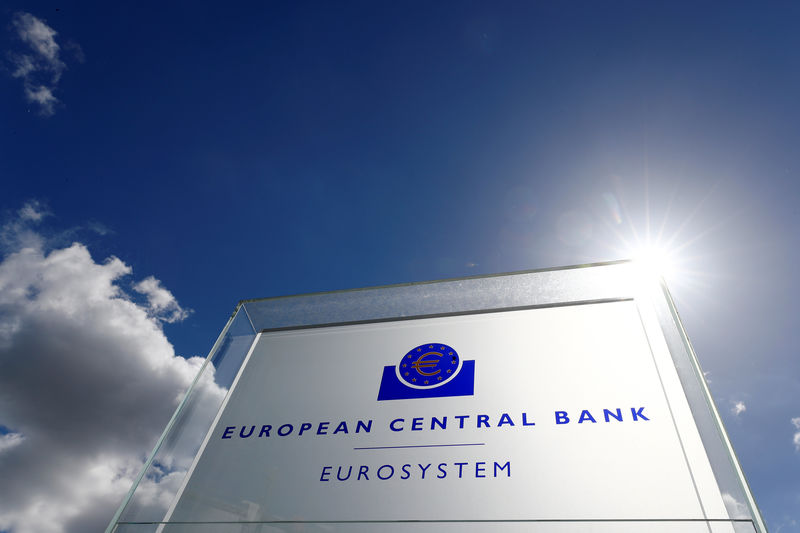 © Reuters. The logo of the European Central Bank (ECB) is pictured outside its headquarters in Frankfurt
© Reuters. The logo of the European Central Bank (ECB) is pictured outside its headquarters in FrankfurtFRANKFURT (Reuters) – None of the countries seeking to adopt the euro meet all accession criteria, the European Central Bank said on Wednesday, dealing a blow to Bulgaria’s hopes of joining the currency bloc quickly.
All seven nations, mostly in central Europe, have made some progress over the past two years and meet most of the economic criteria, the ECB said in a biennial report.
But all fail some of the institutional requirements, such as central bank independence or the prohibition on central banks funding the budget.
Bulgaria, the EU’s poorest member, wants to apply for membership of ERM-2, the two-year “waiting room” for euro adoption, by the end of June, but the report will cast doubt on those aspirations as ECB consent is required before it can join.
“Bulgarian law does not comply with all the requirements for central bank independence, the monetary financing prohibition, and legal integration into the Eurosystem,” the ECB said in its regular Convergence Report.
The ECB’s assessment is similar in conclusion to the European Commission’s view and will likely slow, though not stop, Sofia’s efforts to become the 20th euro zone member.
Bulgaria’s per capita real GDP of 6,300 euros is just a fifth of the euro zone’s average and half that of the bloc’s second-poorest member, raising concern that it may not be prepared for such a leap. Surveys, including by the Commission, also show that Bulgaria is seen among the most corrupt EU countries.
While meeting accession criteria is not a prerequisite for joining ERM-2, it is one of the few times the ECB can halt the process if it is not satisfied with preparations.
Bulgaria’s accession is also seen as a test case for banking supervision, now handled by the ECB for the biggest lenders in the bloc, including the top three banks in each country. Convergence criteria predate the banking union but the ECB also needs to ensure that the banking system is prepared.
Among its concerns are the quality of banking supervision, lenders’ preparedness, and the Bulgarian central bank’s ability to provide liquidity during periods of stress because its currency board framework limits its room for maneuver.
Before it declares itself satisfied with Bulgaria’s progress, the ECB could ask the nation’s top banks to undergo an asset quality review and may also ask them to provide capital plans.
It may also ask the local supervisor to prove it is prepared for joint supervision and may ask the central bank for more detail on how it would provide liquidity to banks during a crisis.
In a further blow to Sofia, the ECB said it had “serious concerns” about the sustainability of Bulgaria’s low inflation rate, arguing that further policy measures may be needed for inflation to stay low, particularly given rising labor costs.
Besides Bulgaria, the Czech Republic, Croatia, Hungary, Poland, Romania and Sweden are also on the list of candidate countries but most have not set targets for euro adoption and see membership in the bloc as a distant goal.
Source: Investing.com






























